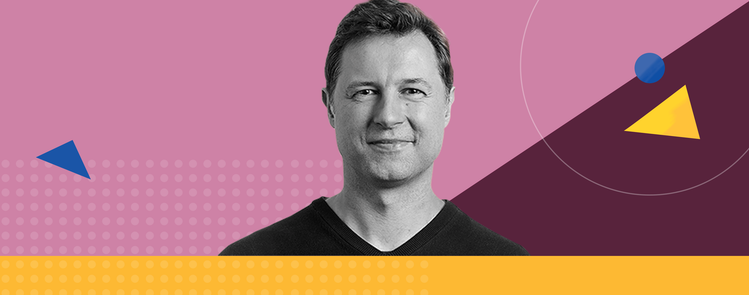On Your Side for 20 Years: An Interview with Rob Mueller, a Fastmail Founder
Post categories


In celebration of 20 years of Fastmail, we’ve interviewed our co-founder, Rob Mueller, to discuss the past, present, and future.
How did you email in 1999? Twenty years ago, Fastmail thought people would pay for a premium email service that put their needs first. And what about now?
People have always wanted excellent email service, that’s a given. In an industry dominated by big tech companies, people are growing concerned about online privacy and long for one-to-one customer support. Our work is even more relevant today by focusing on the human needs surrounding email.
In celebration of 20 years of Fastmail, we’ve interviewed our co-founder, Rob Mueller, to discuss the past, present, and future. Rob is a systems architect and core developer working on Fastmail through today.
Fastmail is 20 years old! What thoughts and emotions come to mind when you think about that?
Thinking back, my first experience with the internet was when I started university. By 1999 when we started Fastmail, I had only been using the internet for seven years, so as clichéd as it seems, I certainly wouldn’t have expected to be still working on Fastmail 20 years later.
Working at Fastmail is a job I still enjoy going to every day. It’s something I feel lucky and grateful to be a part of, with technically interesting and diverse work, and a great team of people creating a best in class product that customers love.
Where did you draw inspiration to start and build Fastmail?
Jeremy Howard [who co-founded Fastmail along with Rob Mueller] had the main inspiration for building Fastmail. As a management consultant working on customer sites, he had to use remote email systems regularly. The options available at the time (Hotmail and RocketMail) were not designed for professionals, and so he decided there was a market for a paid, professional email service. As a software developer, he brought me on board to help build that product, but it quickly became a partnership and an ongoing company we worked on together.
Twenty years later, Fastmail is still delivering on that original idea. These days delivering a professional service is more involved than ever. People expect a feature-rich service with more reliability and better performance than ever. With all the awareness around services collecting and selling user data, people really want a privacy-focused service that doesn’t package up and share their online profile or data with others. Fortunately, as a company that’s always had a straightforward paid subscription model and never relied on advertising or profiling, protecting people’s privacy is an inherent feature for us and something we continue to champion and enhance.
Would you say you have met or surpassed your original vision?
We’ve certainly exceeded the original vision in so many ways. Technically our product is much more sophisticated than what we originally built, but at the same time faster and easier for users to use. The company is bigger and more successful than I ever expected it to be. With our work on JMAP and other open standards, we’ve gone from just building an email service to being thought leaders in the email, contacts, and calendaring space and continuing to drive the entire ecosystem forward.
What accomplishments make you the most proud?
From a technical standpoint, taking our original work on the modern UI we released in 2011 and then building and refining that into what became JMAP, and guiding that through the Internet Engineering Task Force (IETF) to become an RFC standard was a lot of work and a great achievement for the company and everyone involved.
From a personal standpoint, I’m so happy that we were able to take the company from a small group of people working together in one room into a more traditional organizational structure, while at the same time preserving a great atmosphere for people to work in and driving technical excellence.
Where do you expect Fastmail to go over the next 20 years?
Some have claimed “email is dead” over the years, but that’s not what we see. New communication systems come along, but they tend to augment the existing ones in different ways. Email is still the largest open federated communication protocol on the internet. Any new protocol tends to be vendor-specific and tries to lock people into their system. In that way, email continues to have a unique place that I think will keep it around for a long time. I believe that means Fastmail still has a bright future going forward.
Getting email, contacts, and calendaring right in a business setting with all the sharing and different interaction scenarios is a difficult problem. This is why there’s really only a couple of companies that truly have large business ready email, contact, and calendar systems. I feel Fastmail’s involvement in standards work has allowed us to learn all the complexities of these interactions, and it’s something we’ll be focusing more on over the next decade.